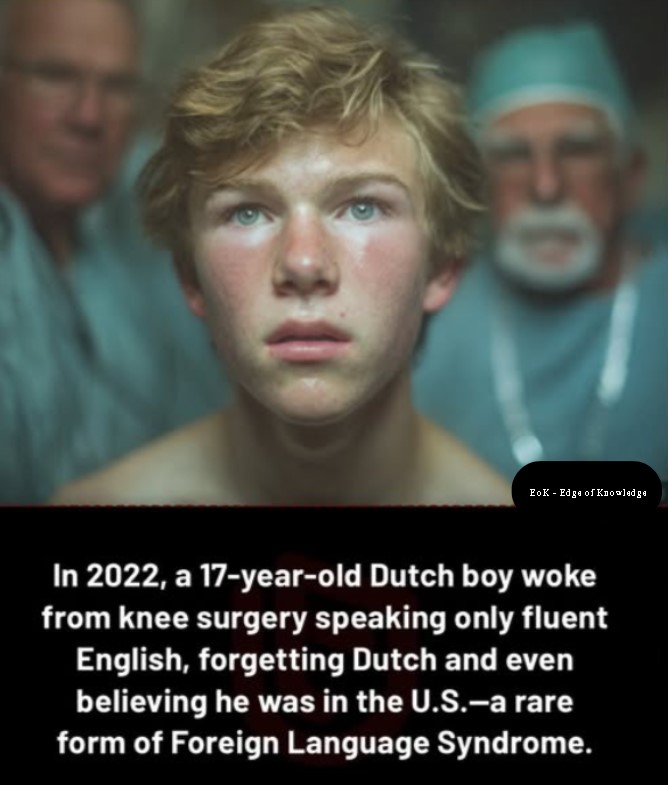The Curious Case of a Dutch Teen Who Awoke Speaking Only English: A Glimpse into Foreign Language Syndrome
In 2022, an unusual neurological case stunned doctors and researchers alike. A 17-year-old boy from the Netherlands underwent a routine knee surgery—an ordinary procedure with no apparent complications. But when he regained consciousness, something extraordinary had happened: he could no longer speak his native Dutch. Instead, he spoke fluent English and believed he was in the United States.
This rare and puzzling phenomenon has been classified as a form of Foreign Language Syndrome, a neurological condition in which a person begins to speak a different language—often fluently—following a brain injury, surgery, or other medical trauma. In this instance, the teen had no prior history of psychological conditions and had only studied English in school, as many Dutch students do. However, post-surgery, his grasp of English appeared far more advanced, accompanied by the loss of his ability to speak or understand Dutch.
According to medical reports, the boy’s memory seemed partially altered. He reportedly expressed confusion about his surroundings and insisted he was in the U.S., although he had never visited the country. His accent, sentence structure, and vocabulary all mimicked that of a native English speaker. Initial concerns of possible anesthesia-related brain trauma were considered, but neurological imaging revealed no obvious damage or stroke.
Foreign Language Syndrome is often conflated with Foreign Accent Syndrome, but the two differ. While Foreign Accent Syndrome causes changes in a person’s speech patterns, Foreign Language Syndrome is far rarer and involves full shifts in language comprehension and fluency. Only a handful of such cases have ever been documented, making this occurrence particularly compelling to neurologists and cognitive scientists.
Experts suggest that such phenomena might result from disruptions in the brain’s language centers, particularly the Broca’s area and Wernicke’s area, which govern speech production and comprehension. Under certain extreme neurological conditions, the brain may “reorganize” itself, accessing secondary languages stored in different regions. If the primary language network is suppressed—even temporarily—the brain may default to a secondary one.
Despite the mystery, the boy’s condition gradually improved. After a period of weeks involving cognitive therapy and guided language exercises, his Dutch language abilities began to return. Eventually, he regained full bilingual capability, but the experience left a lasting impression—not only on him but on the medical community as well.
Cases like this raise profound questions about the brain’s linguistic architecture and adaptability. What hidden languages lie dormant within us? Can trauma unlock these hidden abilities? And how might understanding these anomalies help us treat other cognitive or speech disorders?
While the teenage patient has since made a full recovery, his case continues to be studied. It serves as a fascinating reminder of the human brain’s complexity and its incredible, often mysterious, capacity for adaptation.
Sources:
-
Neurological Case Reports (2022)
-
European Journal of Cognitive Neuroscience
-
University of Amsterdam Medical Faculty
